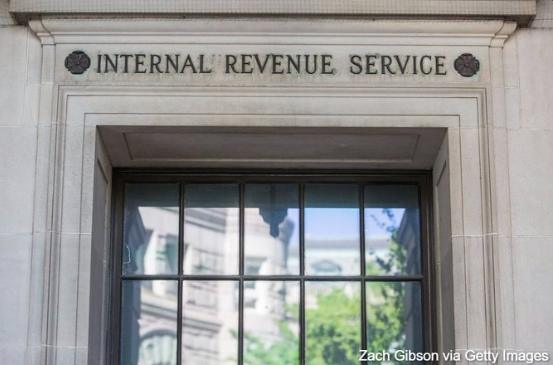Amazing how these data breaches almost always are to hurt anyone who dares buck the establishment. Especially if they are MAGA supporters or hint at supporting Trump in any way. We all know what’s going on.
The Internal Revenue Service (IRS) recently issued a public apology to billionaire Ken Griffin, former President Donald Trump, Elon Musk, and numerous other Americans affected by a significant data breach. The breach resulted in their personal tax information being illegally leaked to the media.
Is this playing life on God Mode?
IRS issues a public apology to hedge fund founder and billionaire Ken Griffin.
Incredible. pic.twitter.com/0yzxRnlOdD
— Brandon Hall (@bhallcpa) June 25, 2024
In a formal statement, the IRS expressed deep regret for the security lapse and acknowledged its failure to prevent the unauthorized dissemination of sensitive taxpayer information by an IRS contractor named Charles Littlejohn. This apology is part of a legal settlement with Ken Griffin, the CEO of Citadel, who pursued legal action against the IRS following the exposure of his confidential data.
The data leaks occurred between 2018 and 2020, when Littlejohn exploited his access to IRS systems to unlawfully obtain and distribute the tax details of thousands of wealthy Americans to various news outlets. He managed to bypass the IRS’s security measures by uploading the sensitive information to a private website, then transferring it onto multiple storage devices which he provided to journalists, including those from the New York Times and ProPublica.
So Ken Griffins Tax Records got leaked on the internet by a IRS contractor named Charles Littlejohn
Case number : 22-cv-24023
Ken Griffin Vs The IRS
………where they at!!!😆😂🤣 pic.twitter.com/C3npLIN4Ub
— Travis (@trvsrdrgz2) June 26, 2024
The IRS has responded to this breach by significantly investing in the enhancement of its data protection systems. These improvements are aimed at addressing vulnerabilities previously identified by the Treasury Inspector General for Tax Administration (TIGTA), the body that oversees the IRS. The agency has committed to ongoing efforts to bolster its security and prevent future breaches.
In January, Charles Littlejohn was sentenced to five years in prison after pleading guilty to unauthorized disclosure of tax return information. His actions not only compromised individual privacy but also prompted serious questions about the IRS’s ability to safeguard taxpayer data.
Following the settlement, Ken Griffin stated that he was thankful for the resolution that promises better protection for all American taxpayers. Additionally, Brooke Cucinella, representing Griffin’s firm Citadel, discussed the case on “Special Report,” highlighting that this outcome was exactly what they aimed for. Cucinella criticized the IRS for its previous inaction on known security issues and lauded Griffin’s efforts in forcing the agency to admit its shortcomings and commit to higher security standards.
The IRS issued an extraordinary public apology to hedge-fund founder and billionaire Ken Griffin for the leak of his and others’ tax information to the media by a former contractor who admitted to stealing the returns of thousands of wealthy individuals. https://t.co/Yo3kUIpxpp pic.twitter.com/EUcLZpiS1u
— Law360 (@Law360) June 25, 2024
The IRS’s public acknowledgment and promise to enhance taxpayer data security mark a significant shift in its approach to handling sensitive information, aiming to restore trust in its operations.
Major Points:
- The IRS issued a public apology to Ken Griffin, Donald Trump, Elon Musk, and thousands of others for a data breach that leaked their personal tax information.
- The breach was caused by IRS contractor Charles Littlejohn, who illegally accessed and distributed sensitive tax data to media outlets between 2018 and 2020.
- As part of a legal settlement with Citadel CEO Ken Griffin, the IRS has committed to substantial investments in improving its data security systems.
- Charles Littlejohn was sentenced to five years in prison in January after pleading guilty to unauthorized disclosure of tax return information.
- The case prompted the IRS to acknowledge past security vulnerabilities and pledge to enhance protections for all American taxpayers’ data.
Charles William III – Reprinted with permission of Whatfinger News



